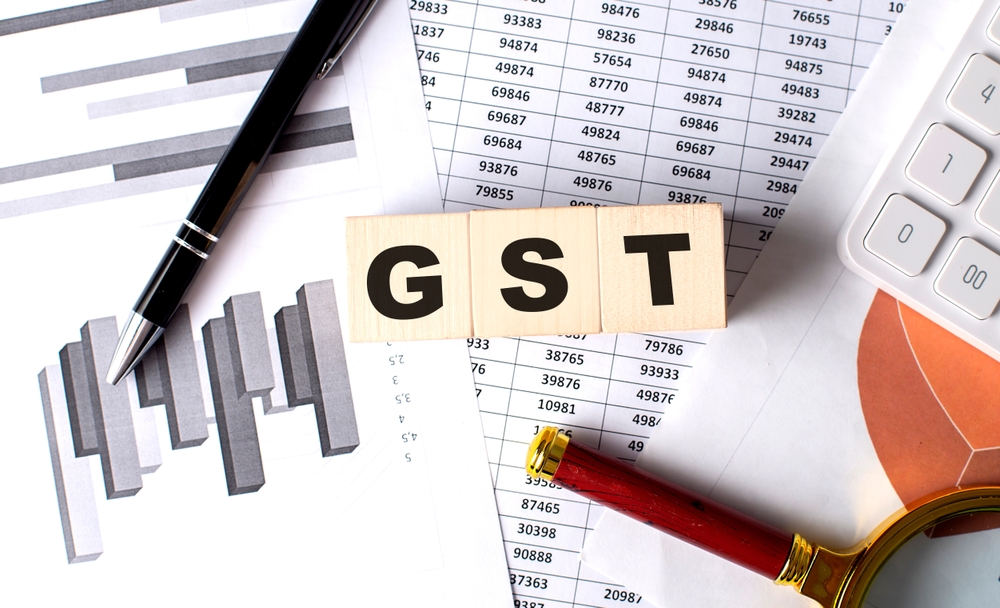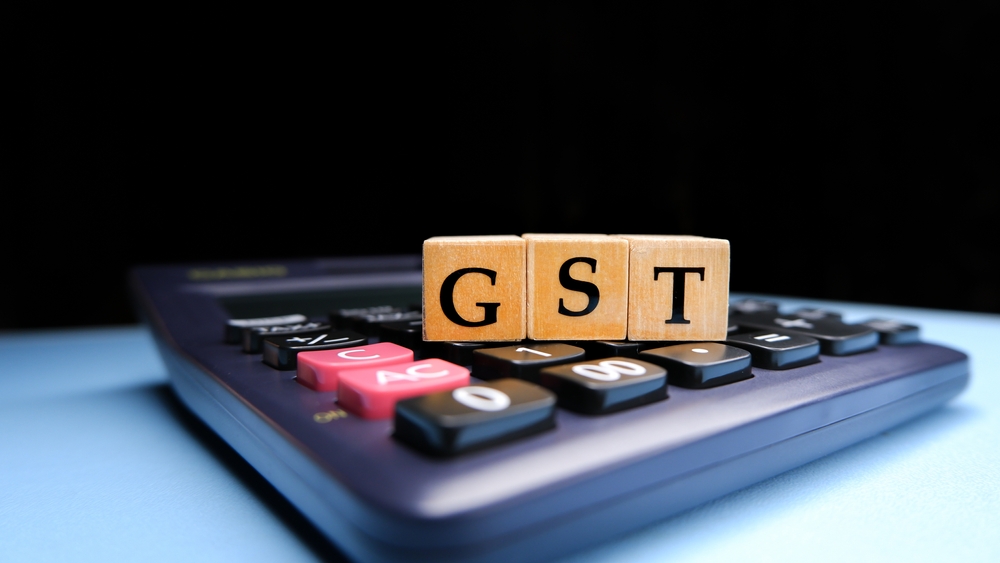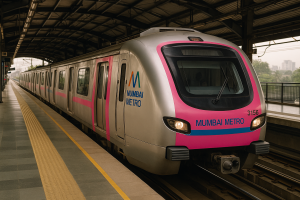GST on construction materials is charged at varying rates. Learn more about GST on Construction and other relevant topics. Learn about the latest GST updates for construction.
GST on construction materials has simplified the taxation system by combining various state and central government taxes. The government also charges GST on construction contracts. Prior to July 2017, the tax levied on goods and services was complex, with multiple taxes imposed on both goods and services. However, the implementation of GST (Goods and Services Tax) has simplified the process by eliminating excise duties, Octroi, VAT, customs duties, and so on. Food, shelter, and clothing are among the most basic human needs.

It is critical to have a comprehensive GST on construction because this sector employs approximately thirty million people across the country. Furthermore, they contribute $200 billion in assets each year. The concept of Works Contract was introduced to govern construction activities.
Central taxes include service tax, excise duty, central sales tax, customs duty, central surcharge, and cess, among others. In addition to these, there are state taxes such as VAT, luxury tax, entertainment tax, purchase tax, and state excise duty, as well as taxes on gambling, advertising, lotteries, betting, surcharges, and cess charges. As a result, one can conclude that this reform has eliminated numerous indirect taxes, providing an equal regime to all taxpayers.
Works Contract with GST on Construction
The works contract is a broad concept that encompasses all agreements related to the construction of a structure on a property. In addition, it includes information about the raw materials and products used in the completion of any project. For example, the GST on residential house construction will include the costs of bricks, cement, painting, wallpaper, bathroom installation and so on. The GST on construction contracts covers activities such as:
Construction
Fabrication
Erection
Completion
Fitting out
Installation
Improvement
Modification
Maintenance
Repair
Renovation
Commissioning and altering immovable property, and transferring properties in good condition
GST on construction contracts covers the following structures/buildings:
Apartment
Residential complex
Single residential units
Industrial buildings
Multi and single-story buildings
Administrative and commercial buildings
According to CGST 2017, taxpayers are only required to pay GST on under-construction properties; there is no need to pay GST on ready-to-move-in properties. Despite knowing the above, many people have difficulty calculating GST on under construction property. Continue reading to learn how to solve this problem and perform the calculation.
Different GST rates on construction materials.
Construction sites use a variety of materials, such as cement, sand, bricks, marbles, and so on. As a result, a proper taxation system was implemented to manage the costs of these goods. However, GST on construction materials varies depending on the material used, making the calculations burdensome for dealers and buyers. Here’s an overview of the rates:
| Material | GST Rates |
| Sand | Asphaltic rocks, oil shale/bituminous, tar sand, natural asphaltites, asphalt- 18%Natural sand- 5% |
| Mica | 12% |
| Brick | 5% – 28% |
| Cement | 28% |
| Crushed stones, pebbles, gravel | 5% |
| Granite and marble | Blocks- 12%Not in blocks- 28% |
| Steel and Iron | 18% |
| Building stones | 5% |
| Tiles | 5% – 28% |
| Coal | 5% |
| Wallpaper | 28% |
| Varnish and Paint | 28% |
| Bathroom interiors and appliances | Pipes and tubes, fitting- 18%Other items- 28% |
| Electrical Appliances | 28% |
Immovable and movable properties
To calculate the GST rate on construction contracts, one must first determine the type of property involved. Section 3 of the General Clauses Act of 1897 addresses property types. Section 3 (26) clearly states that anything attached to or derived from beneficial land falls under the category of immovable goods. In contrast, Section 3 (36) considers all other items such as jewellery, books, utensils, and so on to be movable properties. Corps, grasses, and standing timbers are also considered movable properties.
It should be noted that any property that can be moved without requiring any repairs, renovations, or work is exempt from paying GST on construction materials, services, contracts, and so on. Aside from this situation, people who are entitled to sell or construct a building/resultant must pay GST in accordance with the GST on construction contracts.
| Taxation Rates for Residential and Commercial Properties (GST on Construction) | |||
| Sr No | Nature of Service | Gross Rate | Effective Rate |
| 1 | Affordable residential apartment in a RREP (Commenced on or after 01.04.2019 or ongoing projects opted for new rates) intended for sale | 1.5 Percent | 1 Percent |
| 2 | Residential apartment (other affordable residential apartments) in a RREP (commenced on or after 01.04.2019) or ongoing projects opted for new rates), intended for sale | 7.5 Percent | 1 Percent |
| 3 | Commercial Apartments in a RREP (commenced on or after 01.04.2019 or ongoing projects opted for new rates) intended for sale | 7.5 Percent | 5 Percent |
| 4 | Affordable residential apartment in REP, other than in a RREP (commenced on or after 01.04.2019, or ongoing projects opted for new rates), intended for sale | 1.5 Percent | 1 Percent |
| 5 | Residential apartment (other than affordable residential apartments) in REP other than in a RREP (Commenced on or after 01.04.2019, or ongoing projects opted for new rates) intended for sale | 7.5 Percent | 5 Percent |
| 6 | Ongoing projects in specified schemes (of lower rate of tax) where the promoter has not opted for new rates | 12 Percent | 8 Percent |
| 7 | Commercial Apartments in REP other than in RREP | 18 Percent | 12 Percent |
| 8 | Ongoing Residential apartments as on 31.03.2019 , other tha affordable residential apartments, where promoter has chosen to pay at old rates (other than mentioned from 1 to 6 above) | 18 Percent | 12 Percent |
GST Rate for Construction Services and Materials
In general, the GST rate for construction services is 18 percent. However, this rate varies in the construction sector, as it does for affordable housing, which is 1%. Furthermore, the input service and construction materials rate is 18%, compared to 5% in other segments. In the case of ITC incidence, the GST rate on construction services ranges between 8% and 10%.
For example, calculating GST on under construction property:
Assume the material and labour cost you 75 INR; thus, the tax on 45% of that material and labour will be 33.75 INR. The value of GST on construction contracts will be calculated at an 18% GST rate, which equals 6.075 INR. If the profit is 25 INR, the total sale amount before tax will be 106.43 INR. This rises to 111.75 INR after adding 5% GST to construction and no ITC.
Aside from that, many tutorials will explain how to calculate GST on construction property using examples.
Various materials are required, from laying the foundation to adorning the structure. The GST rates on construction materials vary; some of these materials used for construction include:
Cement: The rate is 12% regardless of the type of cement, such as aluminous, slag, portland, hydraulic, or super sulphate cement.
Sand: The type of sand used may vary, as does the rate. For example, the GST rate on construction materials such as tar sand, oil shale or bituminous, asphalt, asphaltic rocks, natural asphaltites, and bitumen is 18 percent. However, in the case of natural sand or any other type of metal-bearing sand, this rate falls to 5%.
Pebbles, crushed stones, and gravels: The GST rate for residential houses and other structures is 5%.
Bricks: Building bricks, fly ash, siliceous or other fossil-based bricks are available at a 5% discount. However, this has been increased to 12% and will be implemented on April 1, 2022.
Furthermore, tiles, ceramic goods, and refractory bricks are available at a rate of 18%. GST on under-construction properties containing cement, glass-based paving blocks, concrete, and artificial bricks can be as high as 28 percent.
Marble and granite: The GST rate on these materials is 12% for blocks and 28% for non-block structures.
Building stones: A 5% GST is levied on slabs and blocks made of basalt, porphyry, sandstone and other similar building stones.
Coal: The buyer pays 5% GST.
Steel and iron products are available in rolls, wires, blocks, and other forms at an 18% rate.
Mica: 12% GST is levied.
Tiles: The GST rate varies by tile type; for bamboo flooring and roofing/earthen flooring tiles, it is 18% and 5%, respectively. On the other hand, cement tiles, plastic flooring or artificial flooring tiles, concrete tiles, and so on can add 28% GST to your bill.
Interiors: The buyer is charged 28% for wallpapers, paint, enamels, varnish, electrical appliances, and parts. Furthermore, bathroom necessities such as sinks, urinals, flushing cisterns, bidets and baths all have the same GST rate. However, pipe and tube fittings such as elbows or sleeves made of iron, steel, plastic, copper, nickel, or aluminium are subject to an 18% GST rate.
As a result, you can use the information provided above to calculate GST on construction and the total amount. However, even with a complete list of rates, it is not easy; thus, refer to options where you can find how to calculate GST on under construction property with examples. This will provide the exact cost and charges for the goods.
GST Rates on Real Estate Projects
The Goods and Services Tax (GST) has revolutionised India’s tax system. With both benefits and drawbacks, the tax system has evolved over time. GST rates for residential properties were revised in 2019, with the changes taking effect in April 2019.
The current GST rates applicable to real estate properties are listed below:
The GST rate on under-construction properties in India is 5%, excluding Input Tax Credit (ITC) benefits.
The applicable GST rate in the affordable housing segment, which includes properties worth less than Rs 45 lakh, is 1%, excluding ITC.
Commercial properties will be subject to a 12% GST, with ITC benefits.
Note that affordable housing includes properties with a carpet area of less than 60 square metres in metropolitan areas and less than 90 square metres in non-metropolitan cities.
| Real Estate Project Type | Applicable GST |
| Non-affordable housing | 5% excluding ITC |
| Affordable housing | 1% excluding ITC |
| Commercial | 12% including ITC |
GST Rate and HSN Code for Building Construction Services.
Learn about the GST rates and HSN codes for various construction activities in India:
| Construction Activity | Total GST Rate | HSN Code |
| Affordable Housing Apartment Construction for Projects – Starting on or after April 1, 2019 | 1%* | 9954 |
| Non-Affordable Housing Apartment Construction for Projects Starting on or after April 1st, 2019. | 5%* | 9954 |
| Construction of commercial apartments in REP (except RREP) | 12%* | 9954 |
| Works contract services (the contractor supplies the material) | 12% | 9954 |
| Works contract services (where the contractor provides only labour) | 18% | 9987 |
| Composite works contract and goods supply (where the goods are worth less than 25% of the contract value) | 18% | 9954 |
| Composite works contract and goods supply (where the goods supply is at least 25% of the total contract value) | 12% | 9954 |
HSN Code for Building Construction With Materials
The HSN Code for Building Construction with Materials is also 9954. Check out the table of HSN Codes for Construction Materials below.
| Building Material | HSN Code |
| Bricks | 6901 |
| Cement | 2523 |
| Concrete Blocks | 6810 |
| Steel | 72 |
| Tiles | 6907 |
| Electrical Fittings | 8536 |
| Plumbing and Sanitary Fittings | 7418 |
| Glass | 7007 |
Legal Decisions on GST on Construction
GST should only be applied to the cost of construction, not the land. Gujarat High Court
In a significant relief to homebuyers, the Gujarat High Court ruled that the GST on construction is only payable on the cost of construction, not the cost of land. In a case involving GST on construction, the HC determined that the cost of construction must be considered when deciding whether to leave the Goods and Services Tax, or GST on construction. The cost of land will not be taxed. The court ruled that in the sale of a commercial plot, villa, or flat, the actual land value or undivided share is not subject to GST. The land used for construction is not subject to GST. Only the construction costs should be considered. The judgement arrives as a relief for the homebuyers who were charged the GST on the basis of the land value.
AAR: Input Tax Credit (ITC) is not allowed for structures made using prefabricated technology.
The Telangana Authority of Advance Ruling (TAAR) recently issued a significant decision regarding the Input Tax Credit (ITC). According to the Authority’s ruling, the Input Tax Credit cannot be used to build sheds using prefabricated technology.The Authority observed that sheds made of prefabricated technology are immovable properties, and the ITC is not allowed on inward supplies, which may include construction contract services, because such tax credit falls under the purview of blocked credit.In its findings, the Authority noted that the warehouse constructed on the affected land was built to maximise space. As a result, the structure falls under the category of immovable property and does not qualify for Input Tax Credit (ITC) under Section 17 (5) D of the CGST Act, 2017.
Construction services will attract GST at the rate of 18 percent.
According to a recent ruling by the Rajasthan Authority of Advance Ruling (AAR), construction services provided by a vendor under contract with the Rajasthan Housing Board will be subject to GST at the 18% rate. In this case, the applicant appealed to AAR about whether his work contract under the CM Jan Awas Yojana is taxable at 9% CGST and SGST after January 1, 2022. In this case, a 6-percent tax rate was initially determined. However, due to the new GST rules on construction, the bill was handed over with a 9% GST.
Unregistered Homebuyers will be able to claim a GST refund on cancelled contracts.
In a recent development, homebuyers will soon be able to claim GST paid on construction services using prescribed procedures recommended by the GST Council. As of now, there is no procedure for claiming a refund of tax paid by unregistered buyers in cases where the contract/agreement for the supply of services, such as the construction of a flat or house, is cancelled and the time period for the supplier to issue a credit note has expired.The Council recommended an amendment to the CGST Rules, 2017, as well as the issuance of a circular, to specify the procedure for filing a refund application by unregistered buyers in such cases.
Check IndexTap
India’s best real estate portal for purchasing property online. Buy, sell, and rent residential properties in Mumbai and Pune with IndexTap. Check property prices, trends, transaction data, and more.
















